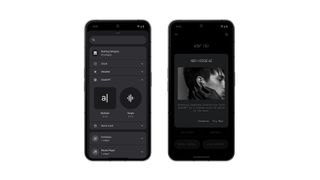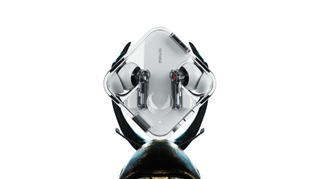Nothing has revealed its latest true wireless earbuds. Carl Pei’s 2020 startup is offering two pairs of earbuds that are extremely similar, but have a few notable feature differences – and at two different prices, of course. Even the names are near-identical: Nothing Ear will be the new higher-end model, while Nothing Ear (a) will be cheaper option, though when I say “higher-end”, both are pretty affordable.
The Nothing Ear cost $149 / £129 (approx. AU$250), while the Nothing Ear (a) are priced £99 / $99 (approx. AU$192). Both will be released on April 22, 2024 – though pre-orders will be available before then.
Let’s break down what you get with both models. Both are in-ear true wireless buds equipped with a custom 11mm driver making the sound. Both support active noise cancellation with a Transparency Mode, powered by what Nothing calls a “smart ANC algorithm”. There are three microphones per earbud to help with this (as well as calls, obviously), and there are pinch-based on-ear controls, much like AirPods Pro 2. Both earbuds offer IP54-rated sweat- and dust-proofing, so should be fine for light exercise.
Via the Nothing X app, both earbuds offer custom EQ options, a Bass Enhance feature, customization of the on-ear controls, a Find My Earbuds tool, an Ear Fit Test to make sure you’ve got the right ear tips on and are getting a good seal, the option of a Low Lag Mode for gaming, and multi-point connectivity for easy switching between devices.

And hot off the press(!), Nothing tells us it has integrated both sets of these Nothing earbuds and its Nothing OS with ChatGPT. What does this mean? It means users with the latest Nothing OS and ChatGPT installed on their Nothing phones will soon be able to pinch-to-speak to the increasingly popular AI tool, directly from both the Ear (a) and Ear buds. Rollout will be gradual across Phone (2) followed by Phone (1) and Phone (2a) for the Nothing Ear and Ear (a) in the weeks after April 18, according to Nothing.

But obviously you’re paying to get a bit more from the Nothing Ear over the Nothing Ear (a), so that model has a few extra bonuses. The heart of it seems to be audio processing and the case design. The Nothing Ear offer an “advanced EQ with profile sharing” compared to a simpler custom EQ in the Ear (a), and also have a “Personal Sound Profile” feature.
The case for the Nothing Ear is IP55-rated, while the Ear (a) is only IPX2-rated – so basically you get a level of water- and dustproofing in the Nothing Ear’s case that means it’s more likely to survive a dunking-related accident.
You also get wireless charging in the Nothing Ear case, which the Ear (a) completely lacks. The Nothing Ear buds are also marginally lighter at 4.62g per bud, compared to 4.8g per bud for the Ear (a), though the Ear’s case is heavier at 51.9g compared to 39.6g for the Ear (a)’s case.
However, the Nothing Ear will apparently deliver slightly lower battery life at 5.2 hours from the buds, compared to 5.5 hours from the Ear (a), all with ANC on. I doubt that 18 minutes will be a dealbreaker, though these aren’t very impressive battery life figures overall – six hours is or above is what we expect these days from the best true wireless earbuds, and the even cheaper Earfun Air Pro 3 deliver seven hours per charge, while the Sony WF-C700N offer 7.5 hours.
Both look like strong contenders among the best budget earbuds based on the spec sheets, but you can read our hot-off-the-press Nothing Ear (a) review to see if they live up to the hype.
The top-tier Nothing Ear looks like better value in the UK than in the US – only a 30% price increase compared to a 50% increase in dollars – but that won’t matter if they’re good. They’re still a lot cheaper than the likes of the Sony WF-1000XM5, and are more in line with the Beats Studio Buds Plus. We’ll let you know how they complete as soon as we’ve had more time with that model.